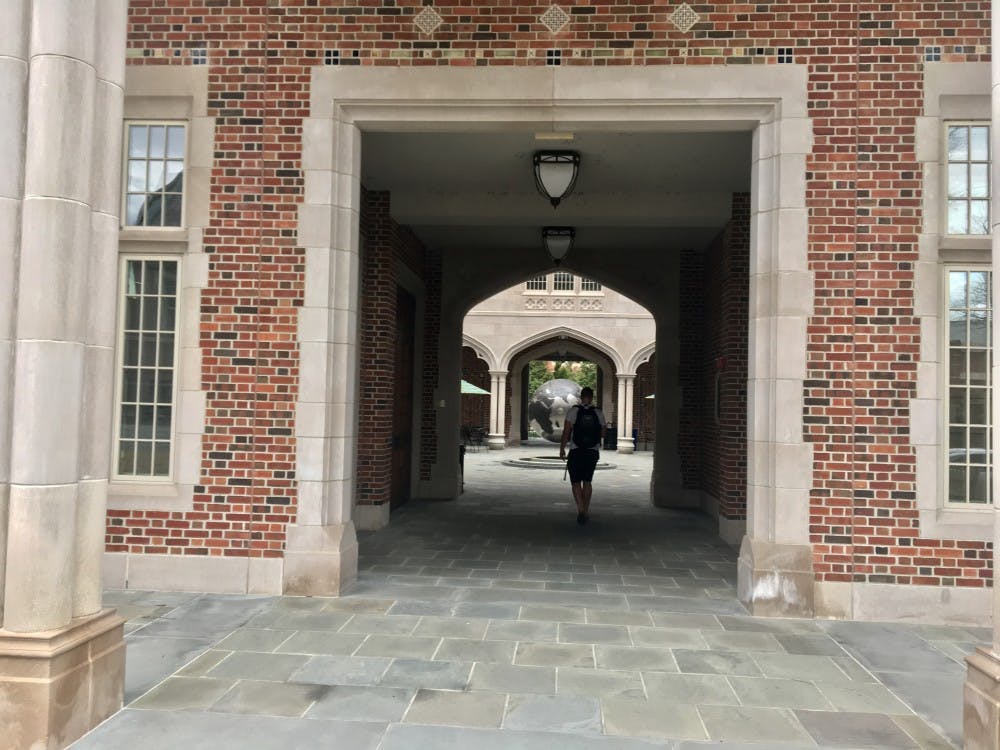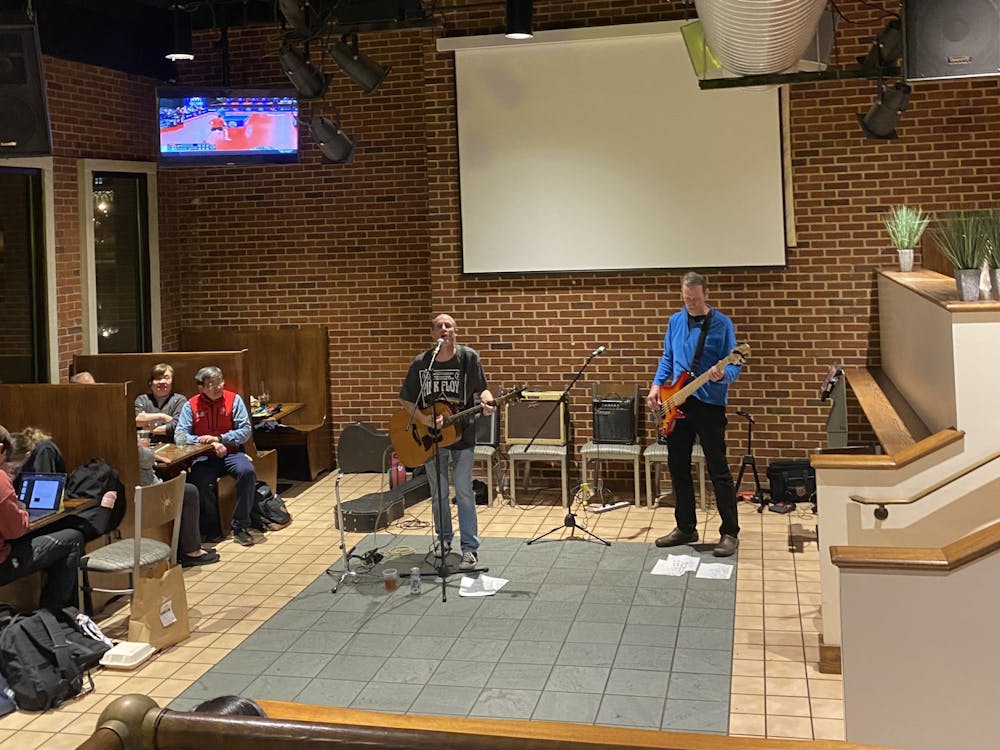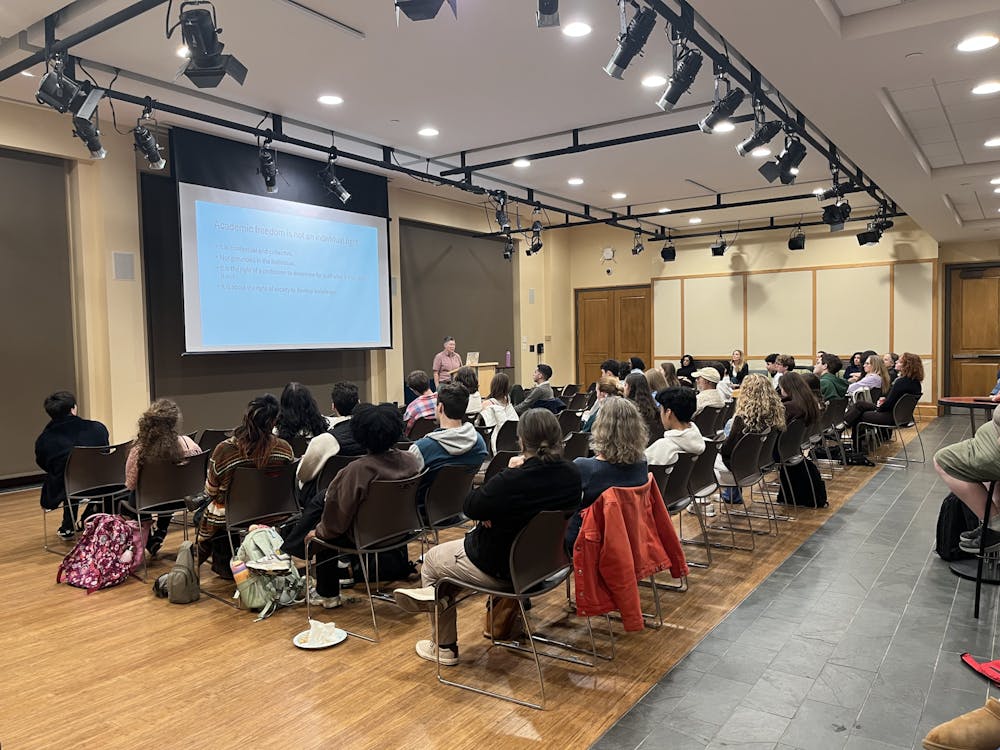Editor's note: an earlier version of this story misstated where Harleen Bal would be studying. It is only Northwestern India, not Northwestern India and Eastern Pakistan.
Two University of Richmond students received the U.S. Department of State's Critical Language Scholarship for a highly competitive language instruction and cultural immersion program for the summer of 2018.
Junior Christopher Rein will use the scholarship to study Arabic in Ibri, Oman, and senior Harleen Bal will study Punjabi in Northwestern India. CLS provides its recipients with funding for most of their activities, including travel and language courses, Rein said.
According to its website, CLS is part of a U.S. initiative to expand fluency in languages that are critical to American economic interests and security. The program provides scholarships for 14 languages and funds students through 20 hours of language courses and cultural activities for eight to 10 weeks.
Rein wants to better connect with the Arabic language while in Ibri, he said. Although he is able to practice grammatical skills at Richmond, it is difficult to learn Arabic without being surrounded by native speakers, Rein said. He hopes that after the summer he will be able to hold full conversations with native speakers, he said.
The CLS will provide Rein with the ability to teach Omanis more about American, he said.
“A big part of the scholarship isn’t just language learning,” he said. “It’s kind of cultural ambassadorship. When I’m in Oman, I’m going to be representing American culture.”
Rein hopes that the CLS will help him achieve his goal of working for U.S. foreign service, he said.
Bal hopes to use the program to improve her proficiency in Punjabi and strengthen her own cultural connection with the language because her family is Punjabi, she said.
In addition, Bal said she would like to use the program to combine her educational experiences. As a public health major, Bal wants to learn more about Eastern medicine during the CLS program, she said.
“There’s a lot of health traditions and healing traditions rooted in kind of eastern medicine that I would be able to learn about so much better if I learned the language like Penjabi,” she said.
The application process for CLS is extremely difficult, Bal said. The application requires multiple rounds of essays and recommendations.
Enjoy what you're reading?
Signup for our newsletter
Martin Sulzer-Reichel, director of the Arabic language program, has known Bal since she became a student at UR and wrote her recommendation for the scholarship. He said the CLS would provide her with opportunities she might not have had otherwise.
“She’s a very bright young woman, and I know that one of the things she wanted was to get closer to her roots because it’s the region where her family originally comes from,” Sulzer-Reichel said. “She’s also very interested in developmental studies and so she can put many things into one basket with this scholarship.”
Rein said he had decided to apply for CLS after asking Michael Marsh-Soloway, his self-directed language acquisition program professor, about the program. Marsh-Soloway completed the CLS program in 2011 and gave Rein helpful tips on his application, he said.
Marsh-Soloway said opportunities would be plentiful for Rein, especially after his time with the CLS program.
“I think Chris is on his way to an exciting career, be it in academia or the federal government," he said. "He will make lasting contributions to whatever field he decides to pursue.”
The CLS would provide students with the opportunity to be easily eligible for federal work and to fully immerse themselves in a different culture, Marsh-Soloway said.
“The federal government is a big institution, and they desperately need people with language skills because we don’t live in a bubble,” he said. “Although people like to think of America as a monolingual or monocultural entity, we have to exist in this international playing field.”
Contact contributor Alexis Angelus at alexis.angelus@richmond.edu.
Support independent student media
You can make a tax-deductible donation by clicking the button below, which takes you to our secure PayPal account. The page is set up to receive contributions in whatever amount you designate. We look forward to using the money we raise to further our mission of providing honest and accurate information to students, faculty, staff, alumni and others in the general public.
Donate Now



